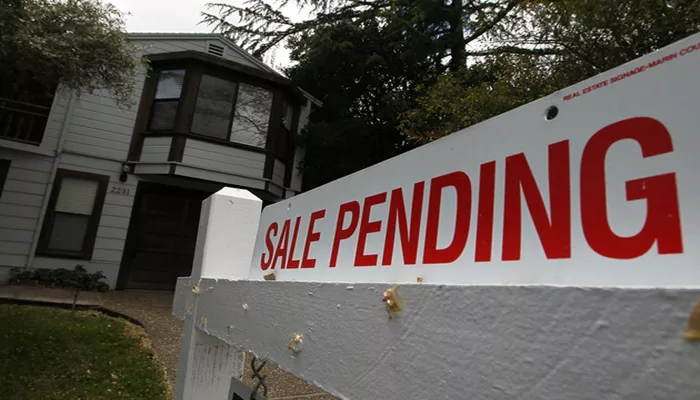California Proposal Could Offer Home Loans to Undocumented Immigrants.
A groundbreaking proposal in California could make undocumented immigrants eligible for state-backed home loans of up to $150,000. This initiative comes at a time when immigration is a hot-button issue in the presidential race.
The bill, expected to pass the California Legislature this week, is supported by the state’s Democratic supermajority. With California hosting the largest number of undocumented immigrants in the U.S., Democratic Governor Gavin Newsom has yet to indicate whether he will sign the bill into law if it passes by the August 31 deadline. Newsom’s decision may be influenced by the ongoing criticism from Republican presidential candidate Donald Trump, who has targeted Vice President Kamala Harris over the migrant situation at the U.S.-Mexico border.
In her acceptance speech at the Democratic National Convention, Harris emphasized the need to address America’s broken immigration system. Although the California proposal targets prospective homebuyers rather than new migrants, it could still be used against Harris by Trump, who has criticized policies he associates with the border crisis. Trump campaign spokesperson Karoline Leavitt condemned the bill as “fundamentally unfair” and indicative of Democratic policies. The Harris campaign has not commented on the proposal.
California Republicans have also voiced opposition. GOP Assemblymember Joe Patterson, representing a suburban district near Sacramento, criticized the use of state funds for undocumented residents, stating he “can’t get behind” such expenditures.
The bill’s author, Democratic Assemblymember Joaquin Arambula from Fresno, defended the proposal, explaining that it requires applicants to meet Federal National Mortgage Association (Fannie Mae) standards, including having a taxpayer identification number or social security number. This, he argues, justifies their eligibility as they contribute to the tax base.
Assemblymember Eloise Gómez Reyes added that the program is not a free-for-all but has specific requirements.
The “California Dream For All” program offers up to 20% in down payment assistance, capped at $150,000. It is a shared appreciation loan, meaning buyers pay interest based on a percentage of the home’s appreciation when it is sold, depending on their income level. The program, funded by the state but managed by the California Housing Finance Agency, does not rely on taxpayer money but on revenues from mortgage loans.
Arambula stressed that his bill is intended to address federal laws that exclude undocumented immigrants from state benefits. “We wanted to ensure our policies are as inclusive as possible for all tax-paying residents,” Arambula told POLITICO.
At the federal level, Harris supports a Biden administration proposal offering up to $25,000 in down payment assistance for first-time, first-generation homeowners, though undocumented immigrants are excluded under current federal law.
Governor Newsom has previously opposed immigrant advocacy, notably vetoing a bill last year that would have restricted state prisons from sharing information about noncitizens with federal authorities. This veto followed criticism from the ACLU regarding alleged anti-immigrant behavior by the state prison system. Assemblymember Wendy Carrillo, who sponsored the bill, argued that immigrants were being left out of restorative justice reforms.
The California Housing Finance Agency has expressed support for Arambula’s bill, suggesting it be expanded to cover all programs managed by the department, including those with private lenders.
Arambula welcomed this support, noting that it followed a July committee hearing where State Senator Anna Caballero advocated for including undocumented immigrants in more state programs.
Chris Saur, a spokesperson for the California Housing Finance Agency, did not comment directly on the bill but affirmed the agency’s mission to help low- and moderate-income Californians secure housing. In June, the agency provided loans to 1,700 first-generation homebuyers through the Dream For All program.
Advocates argue that without clear eligibility for government programs, undocumented immigrants often assume they do not qualify and thus do not apply. In high-cost housing markets like California, this assumption can hinder their ability to transition from renting to homeownership.
Cynthia Gomez, deputy director of state policy and advocacy for the Coalition for Humane Immigrant Rights, which supports the bill, highlighted the long-term residence and contributions of many undocumented immigrants in California. “We want to ensure that anyone with deep roots in California has the opportunity to own a home,” Gomez said.
Launched in 2023, the Dream For All program quickly exhausted its $300 million budget within 11 days, assisting over 2,100 homebuyers. Arambula hopes his proposal will help distribute funds more equitably and reflect California’s diversity better.
“If we pass this law, we can be more intentional and inclusive, ensuring resources reach everyone who can benefit,” Arambula said.


